How to Care for a Ragdoll Cat: The Complete Guide to Diet, Grooming & Health
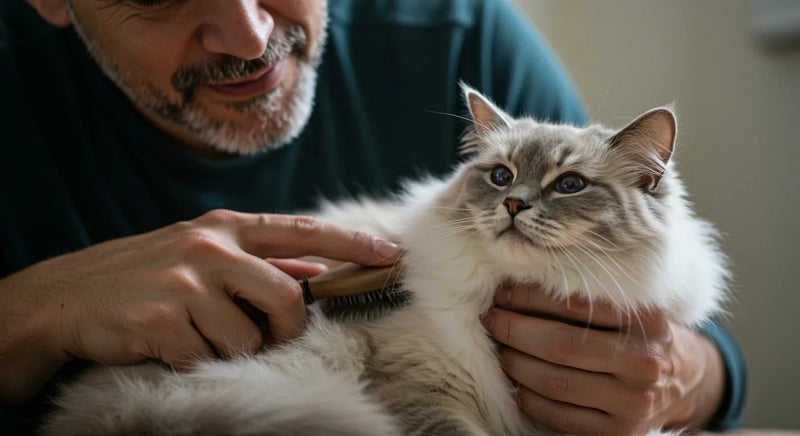
Ragdoll cats are beloved for their gentle temperament, striking blue eyes, and luxurious semi-long coat. These docile felines make wonderful companions, but understanding how to care for a Ragdoll cat properly is essential for ensuring they live a long, healthy, and happy life. Whether you're a first-time cat owner or experienced with other breeds, taking care of Ragdoll kittens and adult cats requires specific knowledge about their unique needs and characteristics.
Learning how to take care of Ragdoll cats involves understanding their dietary requirements, grooming necessities, and potential health concerns that are common to the breed. With proper care, these magnificent cats can live 12-17 years and bring immense joy to their families.
Your Ragdoll's Unique Care Requirements
When it comes to caring for a Ragdoll cat, it's important to recognize that these cats have distinctive traits that influence their care needs. Ragdolls are known for their calm, laid-back nature, which means they may be less active than other breeds and more prone to weight gain. Their trusting personality also makes them more vulnerable, as they're less likely to defend themselves or show typical cat wariness.
Taking care of Ragdoll kittens requires particular attention during their development stages. These cats mature slowly, not reaching their full size until they're 3-4 years old, which means their nutritional and care needs evolve over a longer period than most other breeds.
Understanding how to care for a Ragdoll cat also means recognizing their social nature. These cats thrive on human interaction and may become lonely or stressed if left alone for extended periods. They're also more tolerant of handling than most cats, making grooming and health care procedures generally easier, but owners must be vigilant about their safety since Ragdolls may not instinctively avoid dangerous situations.
Providing proper care for your Ragdoll cat is essential to ensure their overall well-being and happiness.

Nutrition: How to Care for a Ragdoll Cat Through Proper Diet
Maintaining a balanced and nutritious diet is crucial for the health of your Ragdoll cat. Understanding proper nutrition is a fundamental aspect of caring for a Ragdoll cat, as these gentle giants have specific dietary needs that support their large size and calm temperament.
High-Quality Cat Food Selection
Choosing high-quality cat food that is specifically formulated for the nutritional needs of Ragdoll cats is the foundation of proper care. Look for a balanced diet that includes real meat as the primary ingredient, with a proper balance of protein, fats, and carbohydrates. When learning how to take care of Ragdoll cats, it's important to understand that their slower metabolism and larger frame require carefully selected nutrition.
Key features to look for in quality Ragdoll cat food:
-
Named meat protein (chicken, salmon, turkey) as the first ingredient
-
No artificial fillers, by-products, or excessive grains
-
Appropriate fat content (10-15%) to maintain a healthy weight
-
Added omega-3 and omega-6 fatty acids for coat health
-
Taurine and other essential amino acids for heart health
Premium brands often offer breed-specific formulas that cater to Ragdolls' unique nutritional requirements, supporting their semi-long coat, large bone structure, and gentle digestive systems.
Feeding Schedule and Portion Control
Establishing a regular feeding schedule is essential to maintain consistency and avoid overeating. Adult Ragdolls generally require two meals per day, but the specific portions and timing should be tailored to your cat's individual needs. Consult with your veterinarian to determine the appropriate portion sizes and feeding frequency based on your cat's age, weight, and activity level.
Recommended feeding schedule guidelines:
-
Adult cats: 2 meals per day (morning and evening)
-
Kittens (up to 12 months): 3-4 smaller meals per day
-
Senior cats (7+ years): May benefit from smaller, more frequent meals
-
Consistent timing helps regulate digestion and prevents overeating
The key to successful feeding lies in measuring portions accurately and adjusting based on your cat's body condition and activity level.
Preventing Overfeeding and Weight Management
Ragdolls have a tendency to overeat, which can lead to obesity and related health complications. This breed's naturally calm demeanor means they're less active than many other cats, making weight management a critical component of taking care of Ragdoll kittens and adults alike. Follow the feeding guidelines provided on the cat food packaging and monitor your cat's weight regularly, adjusting portion sizes as needed to maintain a healthy weight.
Obesity in Ragdolls can lead to serious health issues, including diabetes, joint problems, and cardiovascular disease. Regular weigh-ins and body condition assessments help ensure your cat maintains an ideal weight throughout their life.
Hydration and Water Requirements
Ensuring your Ragdoll has access to fresh water at all times is crucial for their health and well-being. Some cats prefer running water, so consider providing a cat water fountain to encourage them to drink more. Proper hydration supports kidney function, aids digestion, and helps maintain their beautiful coat.
Ragdolls typically need about 3.5-4.5 ounces of water per 5 pounds of body weight daily. Signs of proper hydration include moist gums, good skin elasticity, and regular urination with pale yellow urine.
Special Dietary Needs and Health Considerations
If your Ragdoll has specific dietary requirements due to allergies, sensitivities, or health conditions, consulting with your veterinarian is essential to determine the best diet plan. They may recommend a prescription diet or specific modifications to meet your cat's unique needs.
Common dietary modifications for Ragdolls may include limited ingredient diets for food sensitivities, kidney support formulas for older cats, or weight management foods for overweight individuals. Regular veterinary consultations ensure that dietary needs evolve appropriately with your cat's age and health status.

Grooming Care: Maintaining Your Ragdoll's Beautiful Coat and Health
Ragdolls have a semi-long, silky coat that requires regular grooming to keep it free from tangles and matting. Here are some grooming tips for your Ragdoll cat:
-
Brushing: Regular brushing is essential to prevent matting and keep the coat in good condition. Use a stainless steel comb or a soft-bristle brush to gently remove loose hair and prevent tangles. Aim to brush your Ragdoll at least a few times a week, or more frequently during shedding seasons
-
Bathing: While Ragdolls generally have a clean coat and don't require frequent bathing, occasional baths may be necessary. Use a mild cat shampoo and follow proper bathing techniques. Be sure to dry them thoroughly after bathing to prevent chilling.
-
Nail Trimming: Trim your Ragdoll’s nails regularly to keep them from becoming too long or sharp. Use a cat-specific nail trimmer and take care to avoid cutting into the quick of the nail. If you're unsure about nail trimming, ask your veterinarian or a professional groomer for guidance.
-
Oral Care: Dental hygiene is important for the overall health of your Ragdoll. Regularly check their teeth and gums for signs of tartar buildup or dental issues. Brushing their teeth with a cat-friendly toothpaste can help prevent dental problems. Consult your veterinarian for guidance on dental care products and techniques.
-
Ear and Eye Care: Check your Ragdoll’s ears and eyes regularly for signs of infection, discharge, or irritation. Clean their ears with a veterinarian-recommended ear cleaner if necessary, and gently wipe their eyes with a damp cloth to remove any debris.
Ragdoll Health Management: Essential Medical Care and Prevention
Understanding potential health concerns is a crucial aspect of caring for a Ragdoll cat. These gentle giants are generally healthy, but like all purebred cats, they have specific health considerations that require attention and preventive care.
Hypertrophic Cardiomyopathy (HCM)
HCM is a common heart condition that can affect Ragdoll cats and represents one of the most important aspects of caring for a Ragdoll cat. It causes the walls of the heart to thicken, potentially leading to heart failure. Regular veterinary check-ups and screening tests, such as echocardiograms, can help detect and monitor this condition.
Key points about HCM in Ragdolls:
-
Most common inherited heart disease in cats
-
Can develop at any age, but typically appears in middle-aged cats
-
Early detection through regular screening improves treatment outcomes
-
Breeding cats should be tested to reduce transmission risk
Early intervention and proper management can significantly improve the quality of life for cats diagnosed with HCM.
Polycystic Kidney Disease (PKD)
PKD is an inherited kidney disorder that can affect Ragdolls and is an important consideration when taking care of Ragdoll kittens from the start. It causes the development of cysts in the kidneys, leading to kidney dysfunction over time. It is important to obtain a Ragdoll kitten from a reputable breeder who performs genetic testing to minimize the risk of PKD.
This genetic condition highlights why choosing a responsible breeder with proper health testing is crucial for long-term cat health. DNA testing can identify carriers before breeding, helping to reduce the incidence of this condition in future generations.
Obesity Prevention and Weight Management
Ragdolls have a tendency to gain weight, so monitoring their diet and ensuring regular exercise are essential when learning how to effectively care for Ragdoll cats. Obesity can lead to various health issues, including joint problems, diabetes, and cardiovascular disease.
Obesity prevention strategies:
-
Regular weight monitoring and body condition scoring
-
Portion control and scheduled feeding times
-
Interactive play sessions to encourage movement
-
Environmental enrichment to promote natural activity
Maintaining an ideal weight is particularly important for Ragdolls due to their large size and calm temperament.
Litter Box Hygiene
Ragdolls, like most cats, are clean animals and require a clean and easily accessible litter box. Proper litter box maintenance is a fundamental aspect of taking care of Ragdoll kittens and adults alike. Scoop the litter box daily, change the litter regularly, and provide one litter box per cat plus an extra one to ensure their hygiene needs are met.
Poor litter box hygiene can lead to urinary tract infections, behavioral issues, and stress-related health problems. Ragdolls' trusting nature means they may be more tolerant of poor conditions, making owner vigilance even more important.
Parasite Control
Regularly administering flea, tick, and internal parasite prevention medications is essential to protect your Ragdoll from infestations and related health issues. Consult your veterinarian for the appropriate parasite control products and schedule based on your cat's lifestyle and risk factors.
Even indoor cats can be exposed to parasites through other pets, contaminated items brought into the home, or brief outdoor excursions.
Vaccinations and Routine Veterinary Care
Ensuring your Ragdoll receives necessary vaccinations and routine veterinary check-ups is fundamental to monitoring their overall health and detecting any potential issues early. Follow your veterinarian's recommendations for vaccinations, deworming, and preventive care protocols.
Regular veterinary visits become even more important as Ragdolls age, allowing for early detection of breed-specific conditions and adjustment of care plans as needed.

Building a Lifelong Bond: Your Journey in Caring for a Ragdoll Cat
Remember, each cat is unique, and their health can be influenced by genetics, lifestyle, and environmental factors. Providing a balanced diet, regular grooming, and proactive veterinary care are vital for keeping your Ragdoll cat healthy and happy. Understanding how to care for a Ragdoll cat is an ongoing process that evolves as your feline companion grows and ages.
The key to successful Ragdoll ownership lies in consistency, patience, and attention to their specific breed characteristics. From taking care of Ragdoll kittens through their slow maturation process to maintaining their health in senior years, these gentle giants reward dedicated care with years of companionship and affection.
Frequently Asked Questions
1. How often should I groom my Ragdoll cat?
Ragdolls should be brushed at least 2-3 times per week, with daily brushing recommended during shedding seasons (spring and fall). Their semi-long coat is prone to matting, especially around the hindquarters and under the arms, so regular grooming prevents tangles and keeps their beautiful coat healthy.
2. What's the ideal weight range for adult Ragdoll cats?
Male Ragdolls typically weigh between 15-20 pounds, while females usually range from 10-15 pounds. However, these cats mature slowly and don't reach full size until 3-4 years old. Regular body condition scoring is more important than exact weight, as each cat's frame size varies.
3. Do Ragdolls need special exercise requirements due to their calm nature?
While Ragdolls are naturally less active than some breeds, they still need regular play sessions to maintain a healthy weight and mental stimulation. Interactive toys, puzzle feeders, and short play sessions 2-3 times daily help prevent obesity and keep them engaged without overwhelming their laid-back nature.
4. How much should I expect to spend annually on Ragdoll care?
Annual care costs typically range from $500-$1,500, including routine veterinary care, high-quality food, grooming supplies, and preventive medications. Additional costs may include professional grooming ($50-$80 per session), emergency veterinary care, and specialized diets if needed. HCM screenings add $200-$400 annually for breeding cats.
5. Can Ragdolls be left alone during work hours?
While Ragdolls can tolerate being alone for 8-10 hours, they're social cats that thrive on interaction. Provide enrichment toys, consider a companion cat, or arrange for midday visits if possible. Signs of loneliness include excessive vocalization, destructive behavior, or changes in eating habits. Their social nature makes them happier with regular human interaction.
Tags:


























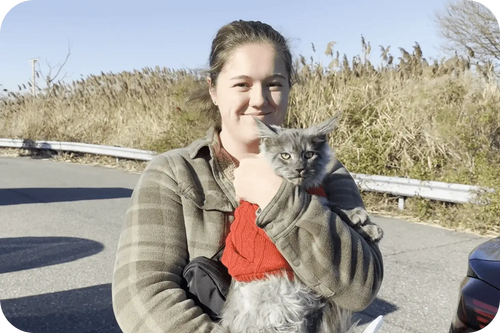
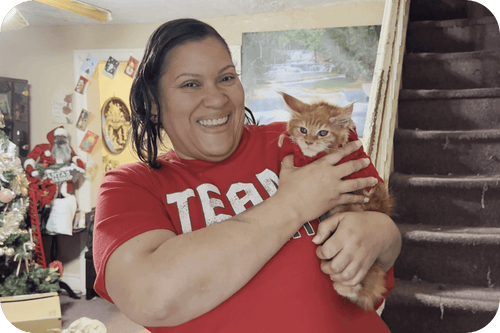
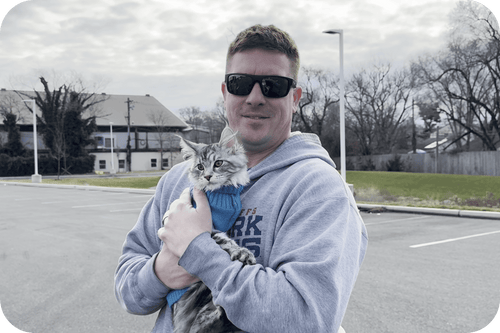

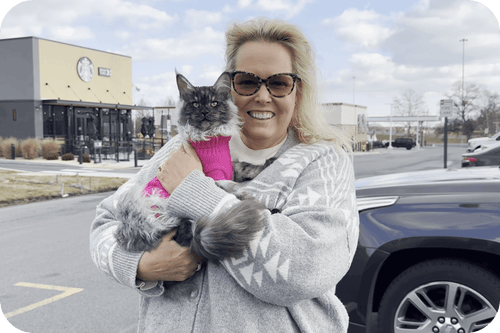

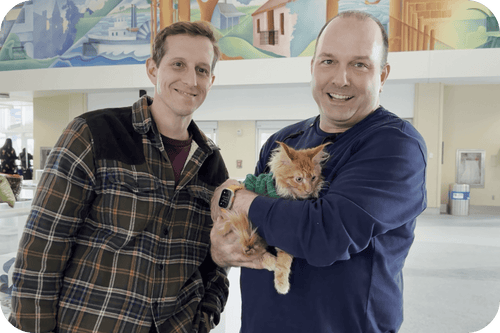

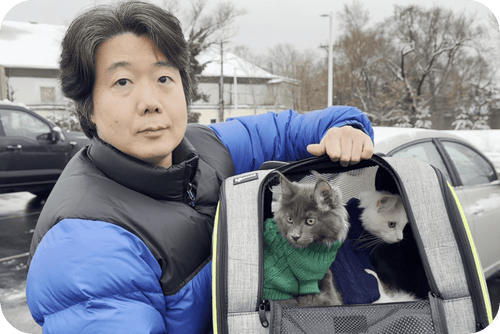

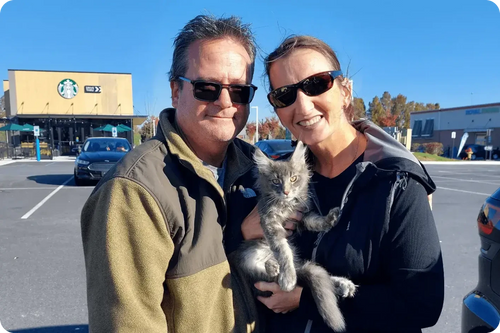



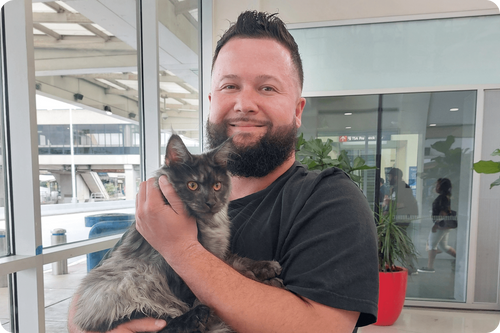











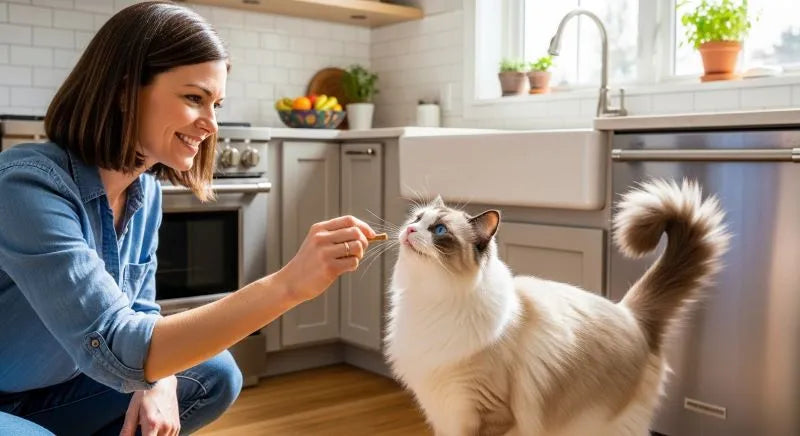

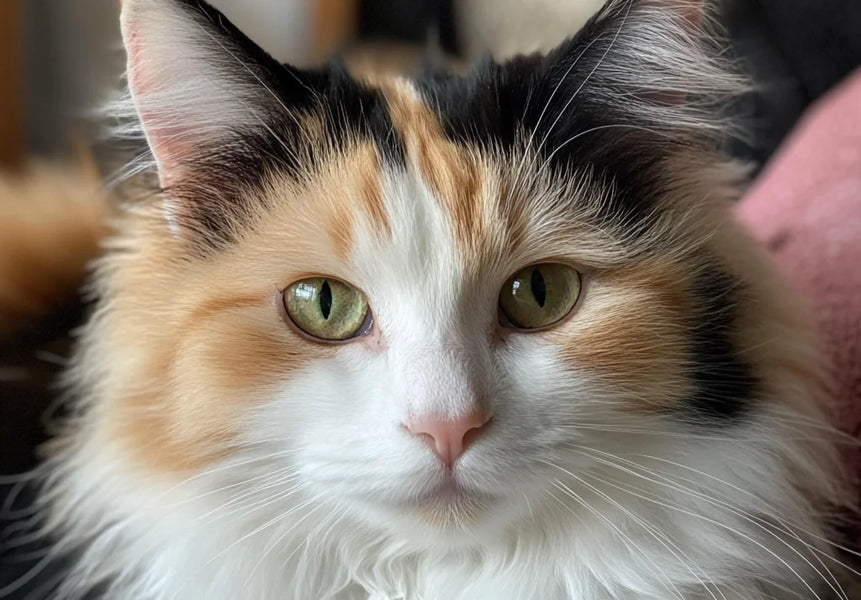

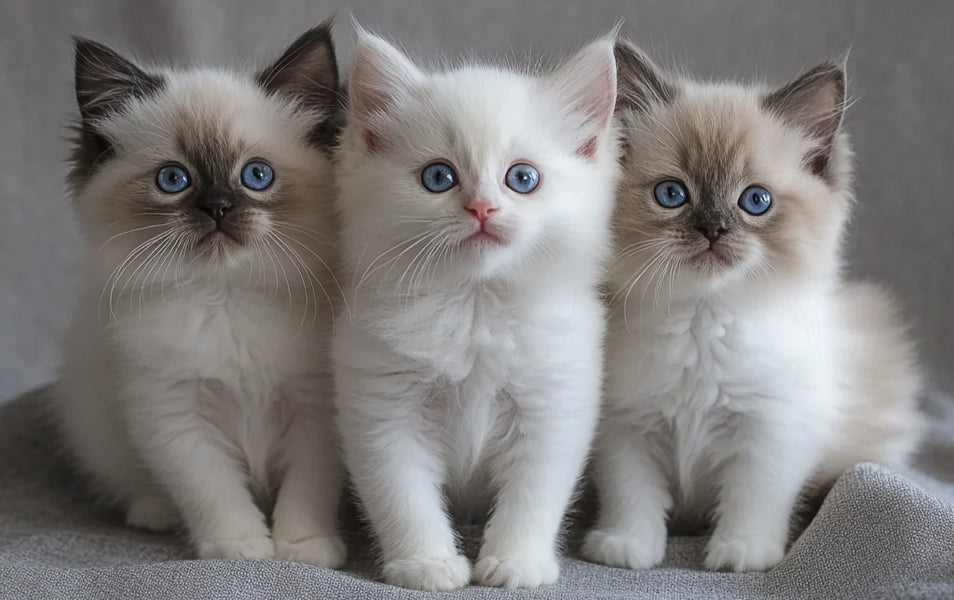




Comments(0)